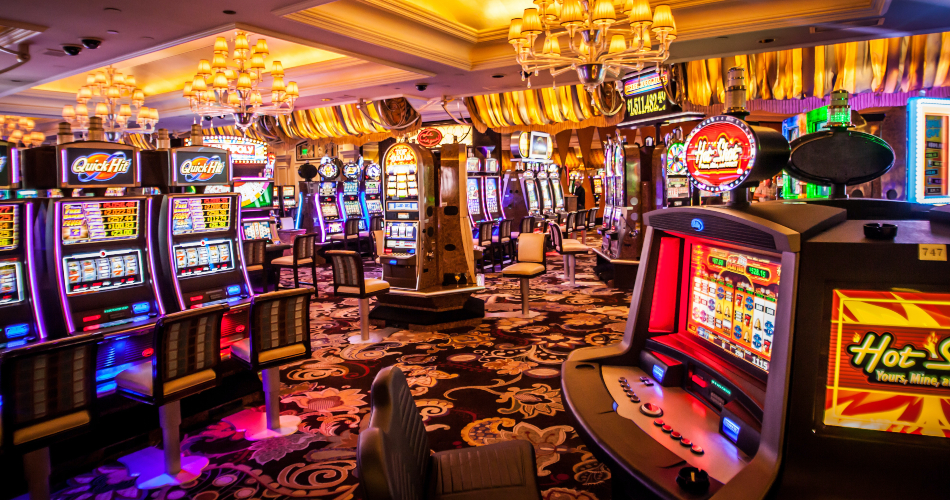BGC Praises Wales’ Re-Opening Of Casinos, Urges England To Follow

The Betting and Gaming Council (BGC) has praised Wales’ re-opening of casinos and betting shops and has urged the UK Government to follow suit and re-open gambling venues as soon as England’s lockdown ends.
The UK’s gambling standards body has published a report supporting the science-led approach taken by the Welsh Government in recognising what the BGC describes as “extensive anti-Covid measures” taken on by all gambling venues in the country as well as the lack of evidence that they contribute to the spread of COVID-19.
Following Wales’ two-week “fire break” Coronavirus lockdown, all 360 betting shops and four casinos in the country have been allowed to re-open, allowing the industry’s 2,000 employees to return to work and help generate revenue for the Welsh economy.
At the time of writing, England is undergoing its second national lockdown which has forced the closure of all non-essential businesses, including betting shops and casino venues. The lockdown is set to end December 2nd, although there is speculation that it may be extended, and the BGC hopes that England will follow Wales’ lead in re-opening gambling venues as soon as lockdown ends.
In the ramp-up to the new lockdown in England, gambling venues were forced to close their doors by 10 PM despite doing much of their trade after that time and having implemented various anti-Covid measure slike perspex screens, efficient track and trace systems, regular and deep cleaning, and strict social distancing too.
Speaking about Wales’ approach to re-opening gambling venues and the ongoing England lockdown, BGC Chief Executive Michael Dugher said: “The decision to re-open betting shops and casinos across Wales is hugely welcome and demonstrates the confidence of the Welsh Government in the safety measures they have placed.
“It means 2,000 staff will not get back to work, and our members can get back to serving their customers. We are now urging the UK Government to also recognise the lengths to which betting shops and casinos have gone to make sure they are Covid-secure and, when the English lockdown ends, allow them to safely re-open from day one.”
Back in March, the entire UK was sent into lockdown, and while most hospitality businesses were open by July, gambling venues and betting shops were told to remain closed until August, leading to numerous venue closure and job cuts throughout the gambling industry. It seems that, even if the current England lockdown isn’t extended, there may be more job losses and business closures.
Online Gambling During Lockdown
The news comes after the UK Gambling Commission Chief Executive Neil McArthur has shared a personal statement on the Gambling Commission website, urging all online gambling operators to ensure the highest operating standards and customer protections while under lockdown.
As reported by SBC News, the post sets out the Commission’s expectations of operators during lockdown. This includes requirements that operators must market responsibly by taking on new customers in a “socially responsible way”, not exploiting the current situation for marketing purposes, and ensuring that affiliates are conducting themselves appropriately too.
The Commission has also reiterated to operators the importance of following its license conditions and codes of practice. This includes acting in a way that minimises the risks of licensing objectives, treating customers fairly and communicating with them in a clear way to help them make informed judgements on the risks of gambling, and working with the Gambling Commission and acting in accordance to its regulatory framework.
Speaking about the current lockdown situation and the ongoing pandemic, McArthur said: “It is vital that operators play their part in keeping their customers safe and we will be continuing to conduct our compliance assessments during this month-long lockdown.
“The gambling industry and daily life as a whole continues to be impacted by COVID-19, and during this time, I want to ensure operators are both supported and aware of the expectations I have outlined above. We continue to be in touch with [the] Government and our colleagues at DCMS, and I will provide further updates when required.”
During the first UK lockdown, the UK Gambling Commission issued new guidance to online gambling operators to ensure that all customers were protected after evidence found that some gamblers were at a higher risk of harm during lockdown.
The new guidance issued back then, which can be read here, included new rules regarding customers including a requirement to identify customers who may be at risk of harm or experiencing harm, interacting with customers who are at risk or experience risk when required, and understanding the impact of interacting with a customer.
In addition, the Gambling Commission’s guidance, which all operators still must follow, also require gambling firms to carry out reviews of thresholds and triggers to track customer vulnerability, review time indicators on websites to avoid customer harm, and to modify existing threshold limits and triggers.
Finally, the new guidance required operators to implement the continuous monitoring of all customers to help spot vulnerable consumers, prevent reverse withdrawals, conduct additional affordability assessments on all customers, and stop offering bonuses and promotions to any user who displays signs of gambling-related harm.
In addition to issuing out new guidance to gambling operators, the UK Gambling Commission has been working to change gambling rules and drive up standards alongside the Betting and Gaming Council (BGC). Back in April, the Commission banned credit cards from being used for gambling and in October set out a new code of conduct on the design and play of slots, implementing a spin speed requirement while also removing several features from slots.
More recently, the Commission announced the revocation of Silverbond Enterprises Limited’s physical gambling license shortly after the regulatory body lifted a suspension on Genesis Global Limited’s online gambling license, allowing it to re-open its closed websites in the United Kingdom.